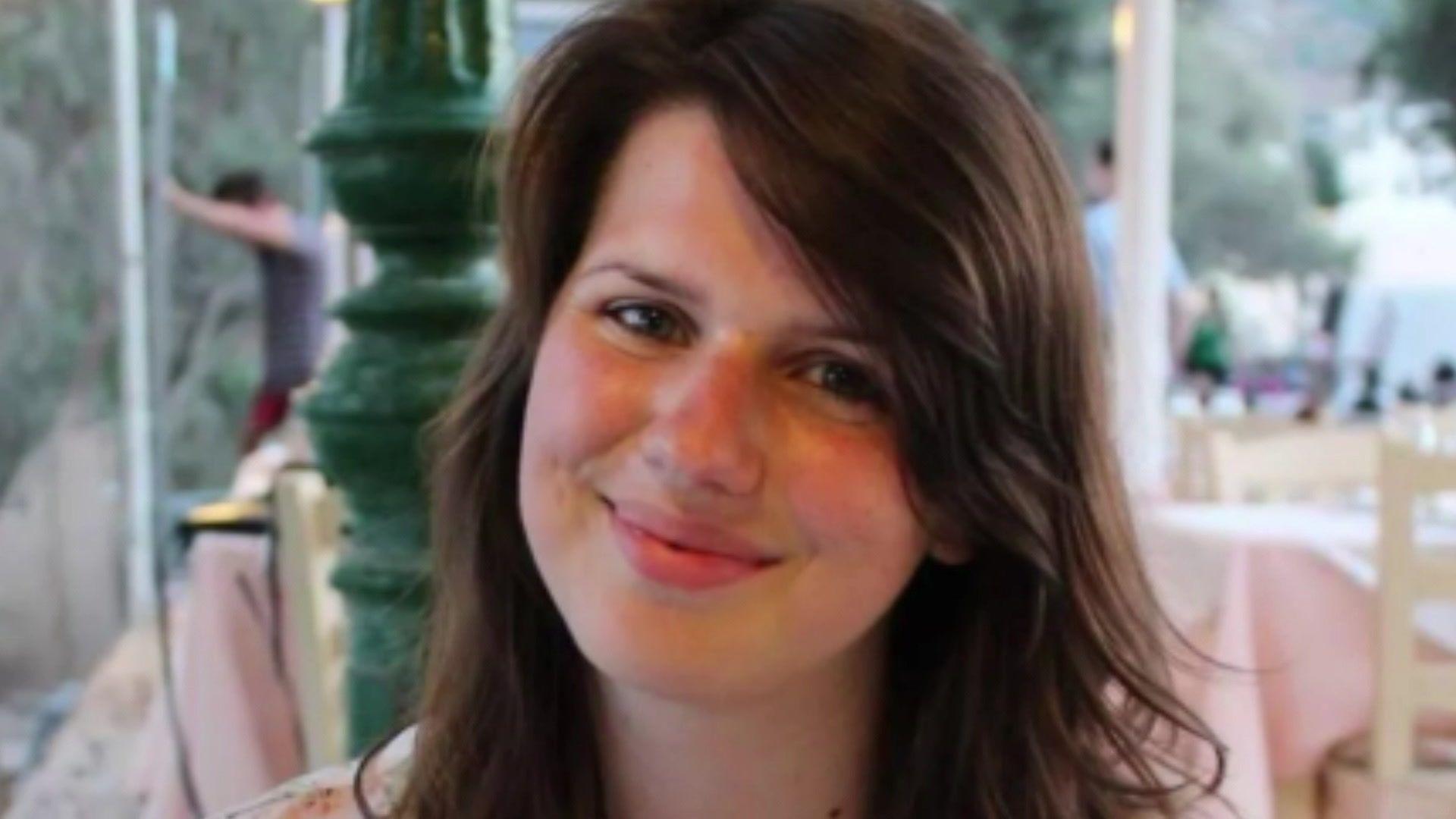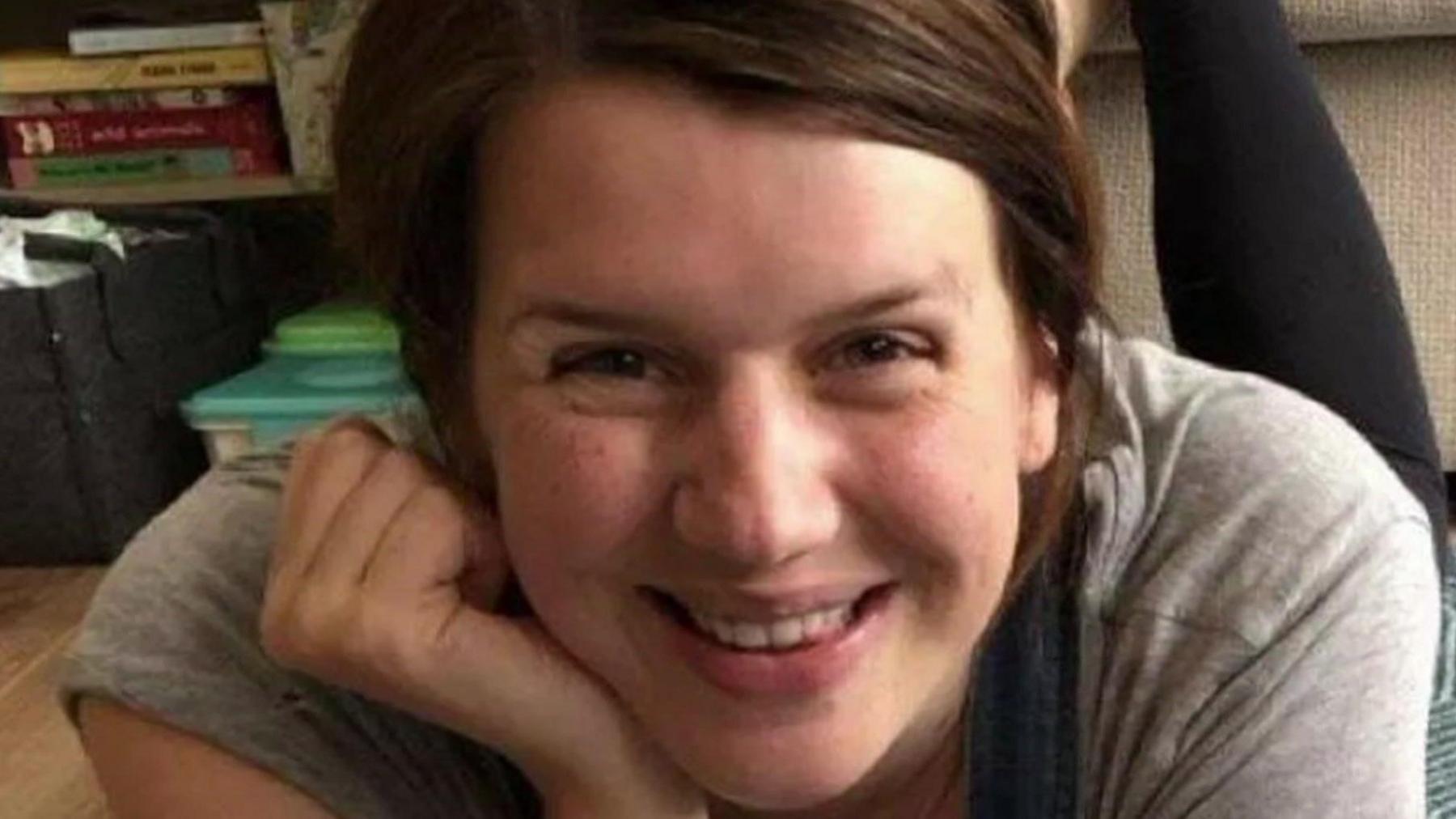Home birth mum 'likely died of multi-organ failure'

Jennifer Cahill was slightly anaemic despite taking iron tablets for three weeks before giving birth, her inquest was told
- Published
A mother who died along with her baby girl after giving birth at home suffered multiple organ failure with cardiac arrest after experiencing post-delivery bleeding, an inquest has heard.
Pathologist Lisa Barker told Rochdale Coroner's Court Jennifer Cahill's bleeding and subsequent cardiac arrest had resulted from a visible tear between her vagina and anus.
Mrs Cahill, 34, died at North Manchester General Hospital on 3 June 2024, shortly after giving birth to Agnes Lily at home in Prestwich.
The baby girl, who was unresponsive when she was born, died a few days later at the same hospital.
Dr Barker told the inquest that blood tests taken 12 days before Mrs Cahill's death showed she was slightly anaemic, despite having taken iron tablets for three weeks.
The expert explained: "She would have been slightly less able to cope with a bleed than if she had more red blood cells."
The inquest also heard evidence from North West Ambulance Service senior paramedic Sean Scroop.
He said when he arrived at Mrs Cahill's house, the room containing the birthing pool was quite dark.
Mr Scroop added: "It was difficult to see... I instructed the curtains to be opened and the light to be switched on to see what was happening."

Jennifer Cahill wanted a natural birth after a difficult labour with her first child in hospital, the inquest has previously been told
Mr Scroop said baby Agnes was on the floor and one of the midwives was attempting resuscitation.
He said he went to the baby "as his priority" and placed a pad under her shoulders to help clear her airway.
The paramedic told the court the baby had not been wrapped in anything to keep her warm.
He said: "I didn't see her wrapped in anything" before explaining "warming is an important part of stimulating a newborn".
'Heightened risk'
The inquest also heard Mr Scroop had no concerns that Mrs Cahill was suffering a haemorrhage during his "short time on the scene".
When asked by coroner Joanne Kearsley if it would have helped him to know that Mrs Cahill was at a heightened risk of a haemorrhage because she had suffered heavy bleeding following the birth of her first child, Mr Scroop replied: "If it was highlighted to me I would have asked what observations had been done and I would have said 'keep monitoring and extricate'."
When asked who had responsibility for Mrs Cahill, he said: "It's clear-cut: post-natal care is down to the midwives."
The court heard Mrs Cahill's husband Rob thanked the North West Ambulance Service for its efforts on the day his wife gave birth to their daughter.
The inquest will resume on Monday.
Get in touch
Tell us which stories we should cover in Greater Manchester
Listen to the best of BBC Radio Manchester on Sounds and follow BBC Manchester on Facebook, external, X, external, and Instagram, external. You can also send story ideas via Whatsapp to 0808 100 2230.
Related topics
- Published17 October
